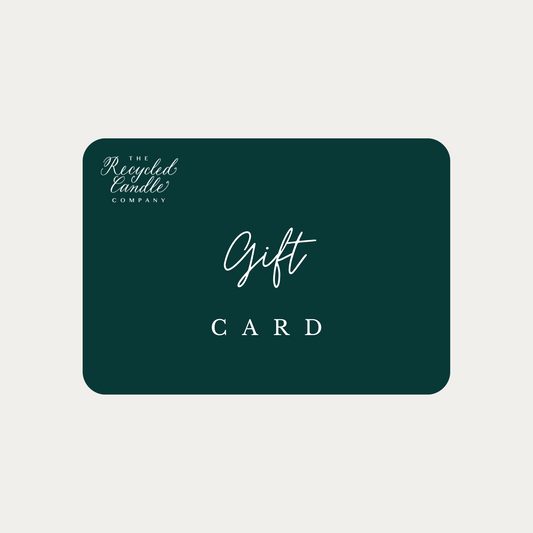You may well have heard the term ‘circular economy’, but what does this actually mean? We thought we’d take a moment out from our busy candle making schedule to delve into the concept and encourage you to join us!
The circular economy represents a departure from the traditional linear model of "take, make, dispose" and introduces a more holistic and regenerative approach to production and consumption.
At its core, it’s about designing out waste and pollution, keeping products and materials in use for as long as possible, and regenerating natural systems. This shift is crucial in a world grappling with the environmental challenges of climate change, resource depletion, and mounting waste.
A key aspect of this shift involves rethinking product design to ensure longevity and recyclability. Manufacturers are increasingly exploring innovative materials and design principles that enable products to be easily disassembled and recycled at the end of their life cycle.
The emphasis on the circular economy has given rise to a thriving market for refurbished and remanufactured goods, including electronics, appliances and furniture. It’s great to see that TV programmes like The Repair Shop have led to communities setting up their own versions of the concept, with local people bringing broken items along to see if they can be mended, rather than consigning them to landfill. Ultimately this also reduces the demand for new raw materials and lessens the environmental impact associated with manufacturing.
Initiatives like the Waste and Resources Action Programme (WRAP) aim to minimize waste, increase recycling rates, and encourage sustainable consumption patterns. These efforts align with broader goals outlined in the UK's 25 Year Environment Plan, which emphasizes the importance of preserving natural resources and reducing the environmental footprint.
In addition, the circular economy supports job creation and economic resilience. As industries evolve to embrace sustainable practices, new jobs are emerging in areas such as recycling, remanufacturing, and eco-design. So it doesn’t just benefit the environment but supports the economy too.
At the heart of the UK's transition towards a circular economy, businesses like ours are paving the way by embodying the principles of sustainability, resource efficiency, and waste reduction.
By giving new life to spent candles, The Recycled Candle Company is redefining the concept of waste within the candle industry. With no publicly funded method of recycling candles, most end up as discarded remnants, contributing to unnecessary landfill waste. By collecting and reusing spent candles, we’re diverting them from landfill - and transforming them into new, beautiful creations. On average, we keep 40 tons of wax out of landfill.
The Recycled Candle Company exemplifies the ‘closed loop production’ concept of the circular economy (where materials are recycled and reintegrated into the manufacturing process) by collecting used candles, melting them down, and using the reclaimed wax to craft entirely new candles. The closed-loop approach not only minimizes waste but also significantly reduces the demand for virgin materials, contributing to the conservation of natural resources.
We also actively engage with the community and promote awareness about sustainable living. It’s interesting to see the conversations forming on our social media platforms, with followers independently discussing how they can collaborate to get their old candles to us. We’re impressed! We also take our story to different audiences, through awards events, exhibitions and collaborations with many different organisations. By fostering a sense of responsibility and mindfulness, we’re contributing to a cultural shift towards more sustainable choices.
In our own way, we stand as a beacon in the UK's circular economy landscape, showcasing how innovation, passion, and commitment can transform an industry. We truly believe that sustainable practices are not only good for the environment but also viable for businesses and communities alike.
Whether you're involved with a business which could collaborate with us, an individual who'd like to donate spent candles - or even set up a community collection point - or a wholesaler who would like to stock our candles, please feel free to contact us.





